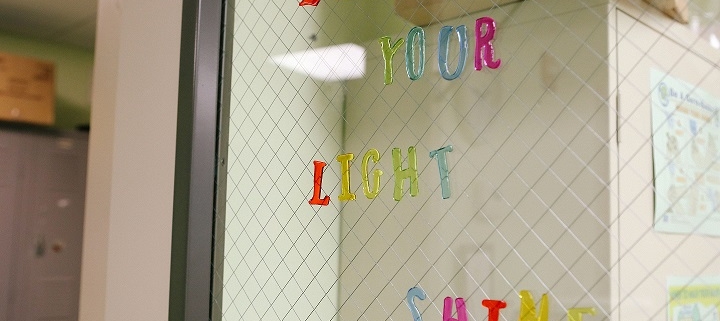Insurrection at the Capitol: What Our Kids Need from Us Right Now
Kids pick up on more than you think. Though they may seem oblivious, lost in a world of play and make-believe, they are absorbing our moods and anxieties like osmosis. They are glancing at us with a watchful eye in passing. They’re overhearing clips of TV, radio, and adult conversation, and wondering what we’re doom-scrolling on our phones. They’re curious why our emotions of sadness, outrage, confusion, or despair are bubbling to the surface.
Older children are plugged into the social media gossip mill and need a strong hand at the wheel during times of transition and chaos. The worst thing we can do right now is hide. As parents and caregivers, we’re not just raising children into young adults. We’re cultivating future citizens, voters, and change-makers. They are honing their critical thinking skills and figuring out where their voice fits in. Finding the right words is not always easy, but it’s worth trying to use this dark day in US history as an opportunity to model patriotism and good citizenship.
They want us to be honest
Shield your kids from overhearing too much about what has happened and consume media on your own time. There is no need to expose them to graphic images or heated exchanges. Be the filter, but be honest.
Acknowledge that there are differences of opinion and that is okay. You might say: “Everyone is entitled to their own opinion. Some people were unhappy about how the election turned out. It’s okay to feel angry and there are different ways to express anger.”
Younger kids may understand it as, “A group of people were angry because they didn’t get something they wanted and they worry about fairness in the election, but they are making bad choices on how to handle their disappointment.” You might also talk about the idea of losing gracefully, rather than acting like a sore loser.
Older kids can tackle more complex issues of racial disparities, peaceful transfer of power, and the importance of election certification. They can also begin to understand that different news outlets take different perspectives. In many regards, we’ve lost a central narrative. People may be armed with different sets of facts and acting based on different realities. It’s not always easy to disentangle fact from fiction or determine what makes a credible news source.
They want to know how government is supposed to work
Let your kids know what conduct is acceptable or unacceptable: “The Constitution gives us the right to freedom of speech and the right to assemble peacefully, but laws were broken when people broke past barriers to go inside the Capitol building. People were hurt and killed, and that’s not ok. Our freedoms do not exonerate us from responsibility or consequence for our actions.”
Appeal to their need for law and order. “People who broke the rules will get caught and punished, and many other people are working to ensure this doesn’t happen again,” you might say. With older kids, you may discuss times in history where dissent was exercised in a responsible way, resulting in greater freedoms for Americans.
They want to know what you value
Fair and free elections and the peaceful transfer of power are underpinnings of American democracy. People do not have the right to do as they please. Democracy requires individual responsibility and cooperation. “Diversity” is our nation’s strength, but we must celebrate this diversity with a spirit of unity. United we stand; divided we fall.
If your child has noticed the disparity between police response to the Black Lives Matter protests over the summer and the security guards taking selfies with the Capitol protestors, let them know civil rights is something you are passionate about defending. The officers who acted inappropriately have been disciplined and police departments around the country are making changes to ensure justice for ALL Americans. Change sometimes takes a long time, but it’s worth working for.
They want to know how you feel
Strong feelings are natural, but it’s best to let your emotions settle before opening a discussion. Use this situation to emphasize: we can’t help how we feel, but we can control how we behave. In many ways, the Capitol mob shows what happens when people do not handle their feelings in appropriate ways. Explain: “We can’t control everything that’s going on in the world, but we can learn to manage our own emotions better.” Discuss ways you can alleviate stress healthily – through clean eating, exercise, writing, mindful meditation, yoga, hobbies, petting the dog, or extra sleep.
They want to share how they feel
There are no magic words to describe what has happened. What’s most important is giving kids the chance to discuss their experience and air their concerns. “What did you hear about the Capitol riots in the news?” you might ask an older child. “What did you think about that?” or “How do you feel about that?” you might follow up. We don’t have to have all the answers, but it’s a powerful gesture to ask questions and take the time to listen. Let them know: “It’s okay to feel scared and unsettled in a place that is supposed to represent stability.”
They want to feel safe
Sometimes kids have no response after a major event until they’ve had time to process it or the rumors going around catch up to them. Let them know: “If you have any questions, you can always come to me to talk and we’ll figure it out together.” Add reassurances like: “No matter what happens, I will always love you and keep you safe.”
It can be helpful for kids to feel like there is something we can do – whether that’s writing to a congressman, donating to a charitable organization, or expressing acts of kindness to others. Or you might talk about some of the positive stories by saying, “Let’s look for the helpers. Who were people who were brave and helped?” Share the story of US veteran and senator Tammy Duckworth who said she’s going to finish her job, no matter what. Talk about the peacemakers who said, “This isn’t us. This isn’t how we do things in America.” Mention the members of the military who secured the Capitol or the Republicans who spoke out against members of their own party when they saw people acting against the Constitution and preservation of the Union.
Providing historical context can be helpful for older children. We’ve had brawls in Congress, a Civil war, Capitol attacks, and electoral college breakdowns, but our nation remains intact. Democracy is far from a perfect process and there are still injustices to rectify, but it will be up to the next administration to make sure everyone’s voices are heard and move our country forward in a positive direction.
The Bottom Line:
Kids are curious, passionate about justice, hopeful, smart, and determined to make things better. This year, our kids have displayed their inspiring resilience and weathered change better than many adults. Yet, the insurrection on Capitol Hill has shown Americans we are far from out of the water. Danger and disparities persist in the days ahead, but we can find our way to a brighter future by grooming the young citizens of tomorrow to see what is happening from all sides, follow their inner moral compass, and seek common ground with their peers.
Contact Shine for information on NYC & East End programs that support exploration, creativity, and acceptance through multicultural festivities, art, culinary classes, music, reading, outdoor fun, and educational field trips. Join a class, workshop, or camp, or hire us to provide innovative programming for your party. By gathering together, our inner lights will shine through this darkness.



